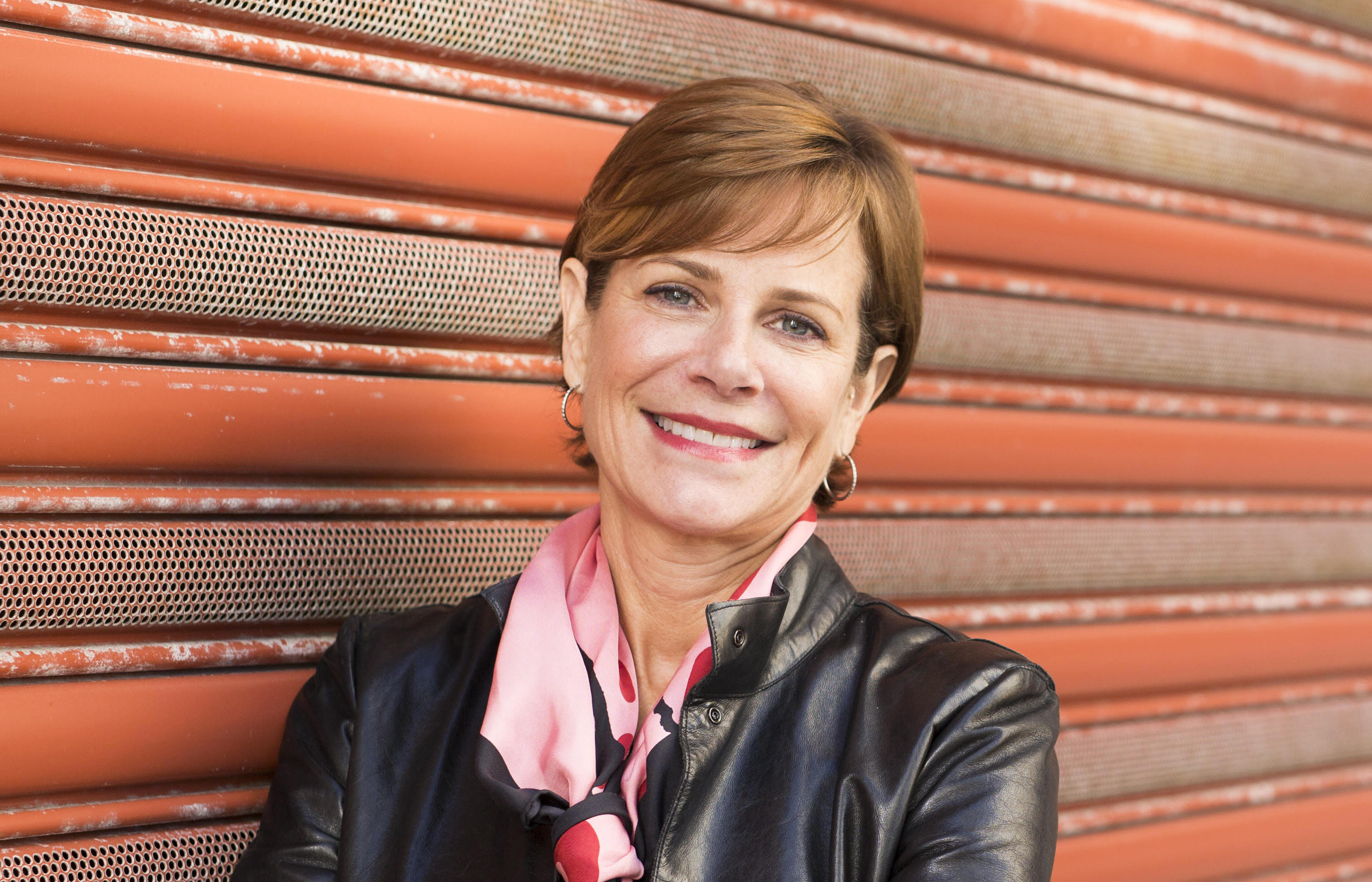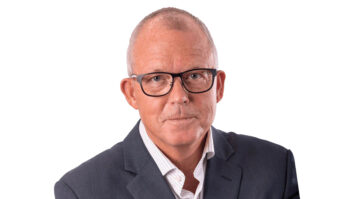
Hosted by Polycom in its Executive Experience Centre in the City of London, May’s Women in AV (WAVE) meeting was entitled ‘Inspiring women to go up the leadership ranks’.
Given by Amy Barzdukas, Polycom’s chief marketing officer, the keynote was based around the idea of the “little red wheelbarrow” of experiences, tools and skills that we each carry with us throughout our lives. She focused on three wheelbarrow items: code switching – adjusting your vocabulary, and what you talk about, to suit the situation; personal branding – establishing a particular image or impression of yourself in others’ minds; and her “golden rule”: treat others as you would like to be treated.
During her presentation, she said: “One of my personal pet peeves about diversity and women in business is, we are often accused of not reaching a hand out to bring up more behind us. In tech, I have a personal theory that is some of us got to be successful because we learned how to survive as the only woman in the room. Now when another woman comes in the room, they’re the competition, because there’s only room for one.”
When I sit down with Barzdukas at the end of the event, she tells me that most of the leadership training that she underwent had little focus on how to be a mentor.
“There was a lot of training on how to be successful as the only woman in the room – don’t simper, take up more space, don’t apologise, don’t say ‘but that was pure luck’, things like that. But there was less training or coaching on how to bring others with you – [the focus was] on how to be individually successful rather than how to be a successful mentor and coach to others. And I think that’s critically important across all diversity campaigns. It’s not just how can you, as whatever minority you represent, be successful; how can you be successful and bring others with you, is much more how we should think about it.”
Mentoring
Another of the presentations was a live video link from STEM School Highlands Ranch in Denver, Colorado, given by computer science teacher Simi Basu – who moved into education after 13 years with IBM – and some of her female students. Basu has been mentoring the girls in some impressive technology projects – including seventh-grader Gitanjali Rao, who won the US Young Scientist Challenge in 2017 for developing a system that detects lead in drinking water much more quickly and easily than existing technology.
However, girls like this are all too uncommon. Another presentation made the point that boys and girls are roughly equally interested in science and technology at school until about age 15. What happens at that age that puts girls off those subjects, I ask Barzdukas?
She believes that as girls and boys go through the changes of puberty and become more self-conscious, “it’s appealing to pull to the people who look more like them.” And if the majority of women haven’t been modelled” – by which she means, they haven’t had the example of a role model – “that, yes you can be a rocket scientist, then it can very quickly become not fashionable. You see it in other situations, [such as] in a poor rural school where reading big books or using big words is not seen as where you should go, it’s a lot easier to be sidelined as a nerd – it would be a lot easier just to go play football or whatever. And so I think that is certainly part of it.
“What we heard from the from Simi and her STEM students, [it shows] you’ve got to model it, you’ve got to encourage it, you’ve got to make people realise that you can imagine it. And then it’s a lot easier for it to be socially acceptable. But you just cannot overestimate the impact of what is seen as socially acceptable during those transition years, because kids can be really mean.”
So what can the average man who works in the AV industry do to help women rise through the ranks? “Being aware of unconscious bias. There are all these studies that show that if you ‘blind’ a resumé, so you have no idea if it’s a man or a woman or what country or anything they’re from, the pure skills will win. But the minute you put a name that allows you to infer, you know, gender or religion or anything else, bias will come into play, despite the fact that otherwise the resumés are perfectly identical. So challenge what are you assuming first, and then go from there.”
She recalls a former colleague at Microsoft, the executive sponsor for diversity – a man – who was very sensitive of unconscious bias. “If you’re having a conversation about two people who are up for promotion, are you assuming the skills that they have to model all look like Steve Ballmer?” Not all kinds of people will exhibit those sorts of “very male” behaviour, she points out. “As you look at talent, and as you look at hiring and promotions, being sensitive to that goes a long way.”
It’s not just in recruitment, though – unconscious bias extends into day-to-day interactions too.
“One of the best things I think that I’ve had male colleagues [realise] is there can be a dynamic that, at a conference table, women will often get talked over, or they’ll say something and people don’t really hear it. And then five minutes later somebody says exactly the same thing and people say, ‘Oh Peter, what a fantastic idea, that’s awesome.’ Listen for that, and it goes down significantly when somebody at the table says, ‘That is a great idea, and you know, Sonal raised that point five minutes ago – so great idea, Sonal.’”
Also, she suggests, help to create the ‘space’ for more voices to be heard, along the lines of “‘Hang on a second, I think Amy has been trying to say something for a few minutes.’ It’s not like ‘Shut up, don’t be a jerk’ – it’s helping to do it in a way that nobody’s being punished.”
This isn’t just a gender thing, I suggest – there are shy men as well. “Exactly. I am a pretty hardcore introvert. I’ve learned over the years how to speak up. But there’s a lot of people who have a hard time breaking in or making themselves heard.”
She’s a firm believer in how company culture percolates down from the top. “There are companies where senior leadership models certain behaviours, and what that does is give permission to people in the ranks to behave exactly as they’re seeing. And when that behaviour is not respectful, it creates an incredibly toxic culture… and those are the kinds of companies I would never want to work for.”
Living the values
She raises an interesting finding – “pretty much universal” – from respondents to company surveys in all kinds of industries. “When they’re polled ‘Do our senior leaders live our values?’, the closer they are to the executive suite, the harsher they are in assessing that, because they’re the ones who get to really see how [they] behave under pressure; which is why I think it is absolutely critical that in senior leadership meetings, that you absolutely model the behaviour that you want everybody to have. Because if you don’t do it there, it doesn’t roll through.”
For an example of a company where senior management do live the values, she doesn’t have to look far. ”Since Mary McDowell became the CEO and about 40% of our executive staff were either new to Polycom or new in role, and we had four women in the C suite – which was great, but not really the whole story – there’s been a real concerted effort to shift the culture to be one of more inclusion, more transparency, giving permission to actually be honest about how things are going. The culture in the company over the last 18 months has just gotten better and better – and I think it really is the senior leadership across the board living the kinds of things that we’ve been talking about here.”
Has this culture arisen because the CEO is a woman? “I don’t think it’s because she’s a woman. I think she brings a wealth of experience from a number of places. And she’s incredibly smart and empathetic, which is a nice balance, so she understands why people do what they do as well as what they’re doing.
“It’s more that it’s been a deliberate focus of the executive team to take the people seriously. ‘Our people are our most important asset’ is not just something on some poster on the wall, it actually is something that we believe in and are trying to live. And if you really believe that, a lot of diversity issues and inclusion issues get solved because you’re really recognising that that’s where your talent comes from.”
That’s not to say that everything is perfect at Polycom. “As recently as a month ago we were doing a project review with our CEO. She is an engineer by training – she came up as a product person in engineering and built her business acumen over time – and someone mansplained some of the most basic stuff about cloud computing to her. I was like, I’m offended that this is being explained, and I’m not an engineer.”
At the end of March, it was announced that Plantronics is to buy Polycom – in a transaction that is expected to complete in the third quarter of this year. So although she is looking forward to the next chapter of the Polycom story, “there’s a little bit of ‘oh no, it’s too soon’. We’ve built something just beautiful now. I really want to keep living this. We have to shift it over into the new world after the deal closes.”







